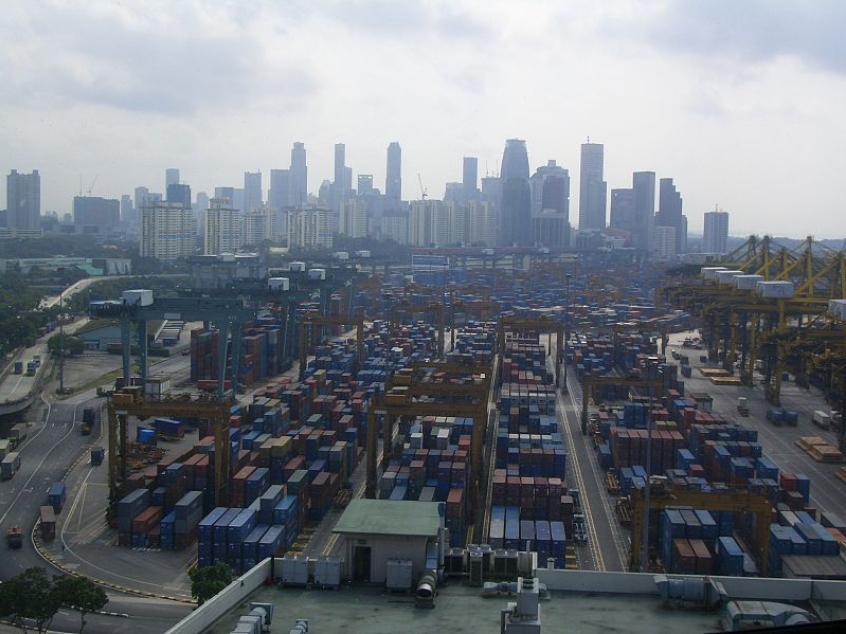
A new study from Pew Research released earlier this month shows that the most religiously diverse countries in the world are to be found in South East Asia.
The most religiously diverse country is Singapore, with 33.9 per cent of its population following Buddhism, 18.2 per cent Christian, 14.3 per cent Muslim, 5.2 per cent Hindu, 2.3 per cent adhering to folk religions, 9.7 per cent falling into other religious groups.
Those who have no religious affiliation in Singapore number 16.4 per cent of the population.
The second and third most diverse countries are Taiwan and Vietnam.
Taiwan's three largest religious groups are folk religions at 44.2 per cent of the population, Buddhists at 21.3 per cent, and the group listed as "other" who make up 16.2 per cent.
The non-religious segment of Taiwan's population make up 12.7 per cent of its total.
In Vietnam, the three biggest groups are the folk religions at 45.3 per cent, Buddhists at 16.4 per cent, and Christians who account for 8.2 per cent of the population.
Of the top three, Vietnam has the largest percentage of religiously unaffiliated people, totaling 29.6 per cent of its populous.
Others in the top 12 most diverse countries are Suriname, Guinea Bissau, Togo, Ivory Coast, South Korea, China, Hong Kong, and Benin.
The UK comes in as the forty ninth most religiously diverse country in the world, one place below North Korea and Germany, but one place above Kazakhstan and Botswana.
Pew Research's data says that the UK's population is 71.1 per cent Christian, 21.3 per cent unaffiliated, 4.4 per cent Muslim, 1.3 per cent Hindu, 0.5 per cent Jewish and 0.4 per cent Buddhist.
Among other European countries, the UK is in the middle range of religious diversity. France is higher in twenty fifth place, but Italy is lower in eighty eighth. Spain is seventy fifth most, Sweden is forty first, Belgium is thirty first, and Poland is a hundred and sixty forth.
The US is sixty seventh most diverse, far behind the most religiously diverse European country which is the Netherlands, in eighteenth place, just behind Mongolia.
The Dutch population is 50.6 per cent Christian, 42.1 per cent unaffiliated, 6 per cent Muslim, 0.5 per cent Hindu, 0.2 per cent Buddhist and 0.2 per cent Jewish.
Unsurprisingly, the least diverse country listed is Vatican City, with 99.9 per cent of its population listed as Christian. Morocco also has 99.9 per cent of its population falling into one religious bracket, Islam.
The second least diverse areas listed are the tiny Pacific island of Tokelau, a territory of New Zealand that is 99.8 per cent Christian, and the North East African failed state of Somalia, which is 99.8% Muslim.
The data also shows which countries have the highest portions of each religion. After Vatican City and Tokelau, the most Christian countries are Timor-Leste, Romania, Papua New Guinea, Tonga, and Armenia.
The least Christian countries are also the ones with the most Muslims. Afghanistan, Iran, Morocco and Somalia are all in the top five most Muslim countries, and the bottom five for Christian populations.
The UK is ranked a hundred and thirty third by Christian population percentage, just above Luxembourg and below Belarus.
The country with the largest population segments with no religious affiliation are the Czech Republic, who are 76.4 per cent unaffiliated, followed by North Korea with 71.3 per cent, Estonia with 59.6 per cent, Japan at 57 per cent, and Hong Kong with 56.1 per cent.
The UK is twenty fourth in the rankings of the world's most religiously unaffiliated countries.













